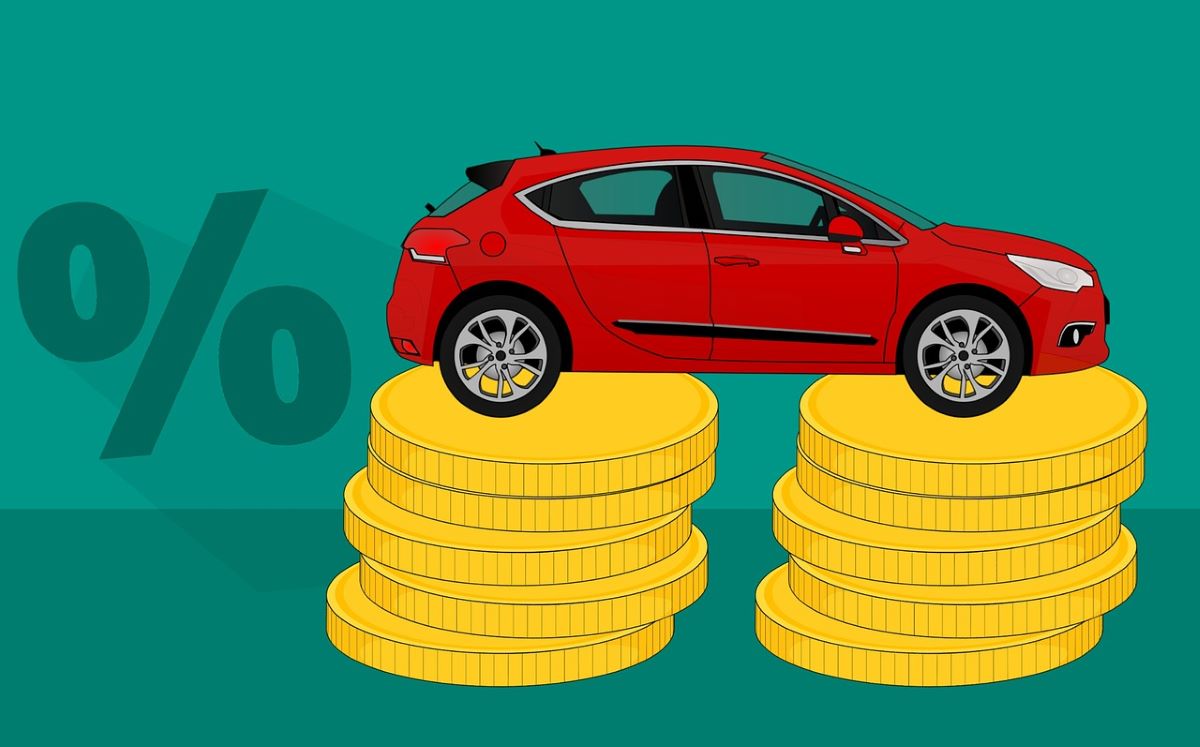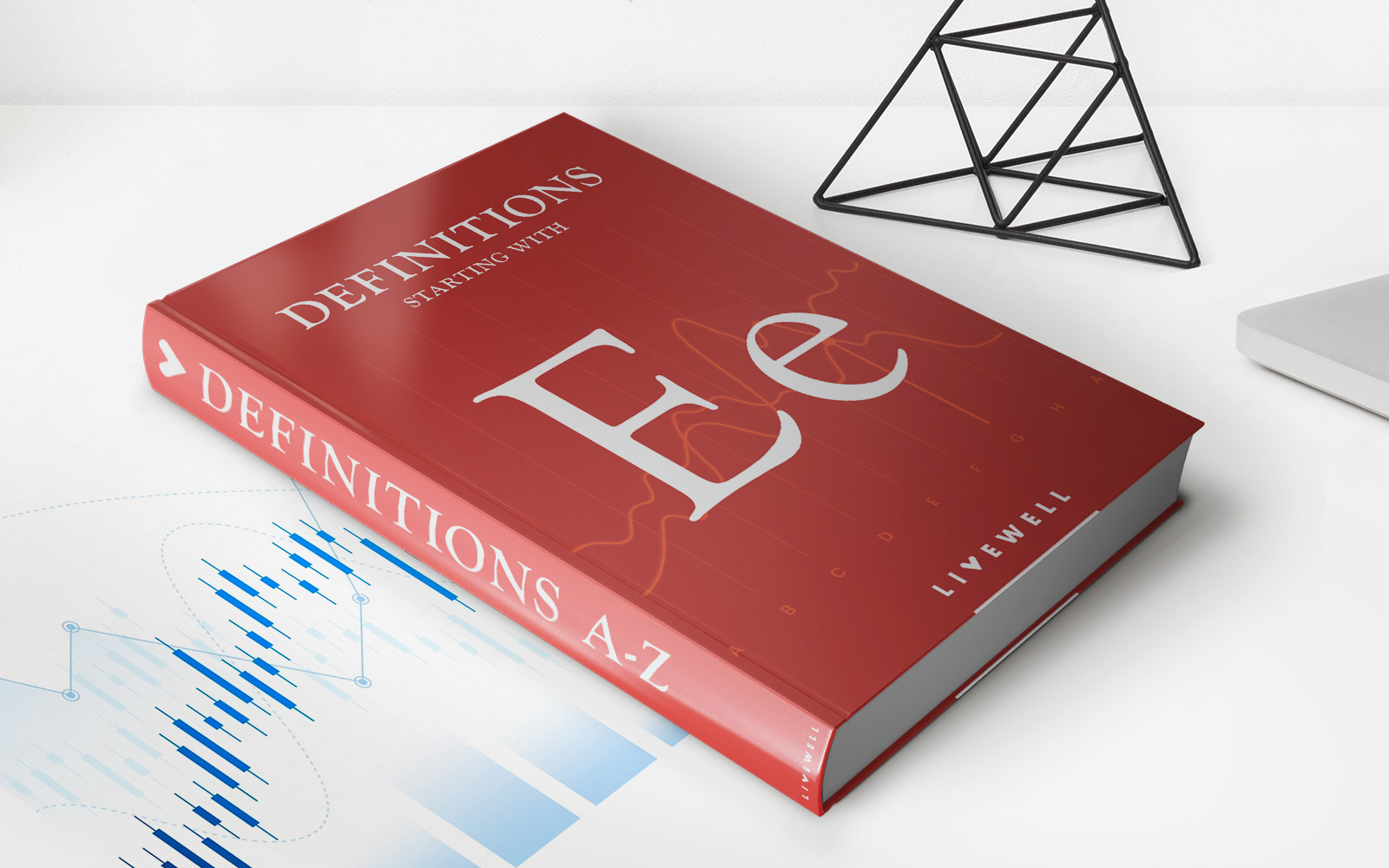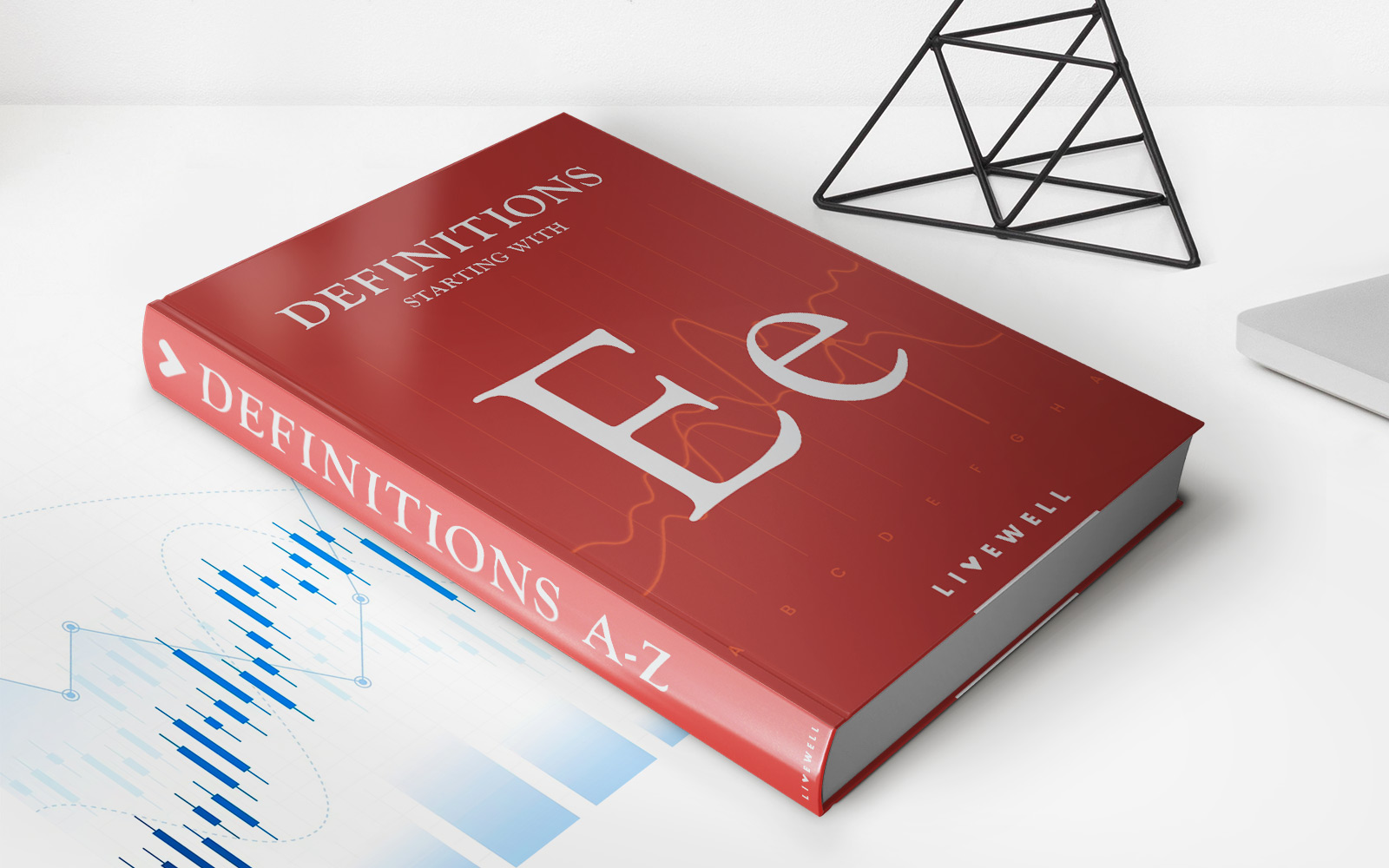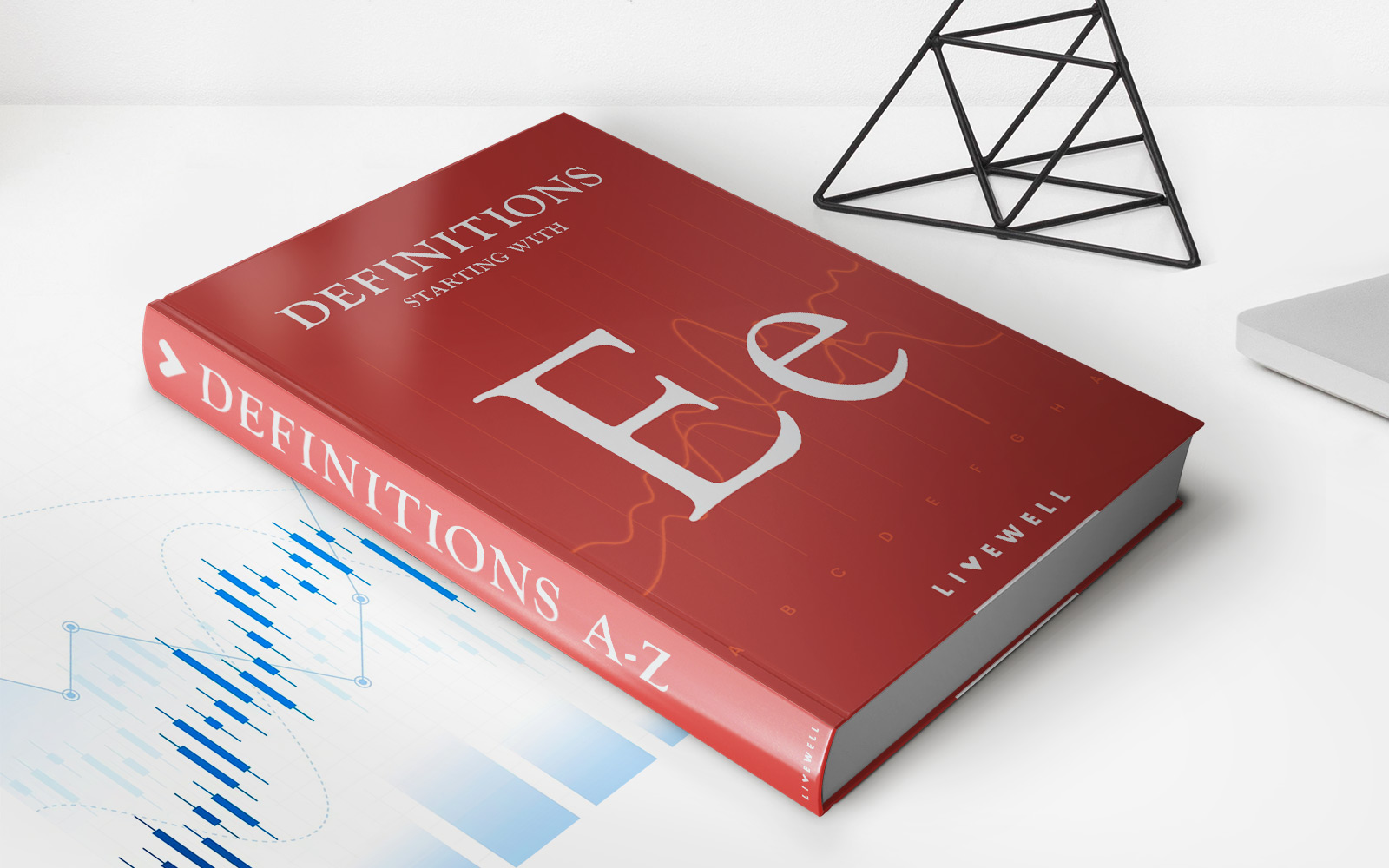

Finance
How To Use A Credit Union To Buy A Car
Modified: February 21, 2024
Learn how to finance your car purchase with a credit union. Find out the benefits of using a credit union for car loans and make a smart financial choice.
(Many of the links in this article redirect to a specific reviewed product. Your purchase of these products through affiliate links helps to generate commission for LiveWell, at no extra cost. Learn more)
Table of Contents
- Introduction
- Benefits of Using a Credit Union to Buy a Car
- How Credit Unions Work
- Researching and Choosing a Credit Union
- Applying for a Car Loan from a Credit Union
- Understanding the Terms and Conditions of the Loan
- Securing the Loan and Completing the Car Purchase
- Tips for Using a Credit Union to Buy a Car
- Conclusion
Introduction
When it comes to buying a car, many people turn to traditional banks or dealership financing without considering other options. However, using a credit union to finance your car purchase can offer numerous advantages that you may not find elsewhere. Credit unions are member-owned, non-profit financial institutions that typically offer lower interest rates and more personalized service than traditional banks.
In this article, we will explore the benefits of using a credit union to buy a car and guide you through the process of researching, applying for, and securing a car loan from a credit union. We will also provide some helpful tips to make the most of your credit union experience.
One of the major advantages of using a credit union to buy a car is the potential for lower interest rates. Credit unions are known for offering competitive loan rates because they are not driven by profit maximization like banks. As member-owned institutions, they prioritize providing affordable financial solutions to their members. This can translate into significant savings over the life of your car loan.
In addition to lower interest rates, credit unions often have more flexible lending requirements compared to banks. They may consider factors beyond just your credit score when reviewing your loan application, such as your income, employment history, and existing relationship with the credit union. This means that even if your credit score is less than perfect, you may still have a chance to secure a car loan from a credit union.
Another benefit of using a credit union is the personalized service you can expect. Unlike large banking corporations, credit unions tend to have a more community-oriented approach, where members are valued and treated as individuals rather than just account numbers. Whether you need guidance on the car buying process or assistance with your loan application, credit union staff are usually accessible and willing to help.
Furthermore, using a credit union to buy a car allows you to become a member of a financial community and enjoy the various services and perks that come with it. From higher interest rates on savings accounts to discount programs on insurance and other financial products, credit unions often offer additional benefits to their members.
In the following sections, we will delve into the intricacies of how credit unions work, how to research and choose the right credit union for your car loan, and the step-by-step process of applying for and securing the loan. So, let’s get started on your journey to using a credit union to buy a car!
Benefits of Using a Credit Union to Buy a Car
Using a credit union to finance your car purchase comes with a range of benefits that can save you money, provide personalized service, and offer long-term financial advantages. Here are some of the key benefits of using a credit union to buy a car:
- Lower Interest Rates: Credit unions are known for offering lower interest rates compared to traditional banks or dealership financing. This can result in significant savings over the life of your car loan. By securing a lower interest rate, you can reduce your monthly payment and potentially pay off your loan faster.
- Flexible Lending Requirements: Credit unions often have more flexible lending requirements, which means they may be more willing to work with borrowers who have less-than-perfect credit. They take a more holistic approach to evaluating loan applications, considering factors such as your income, employment history, and existing relationship with the credit union.
- Personalized Service: Credit unions are known for their personalized service and community-oriented approach. Unlike large banking corporations, credit unions value their members and treat them as individuals rather than just account numbers. You can expect personalized guidance throughout the car buying process and assistance with your loan application.
- Membership Benefits: When you use a credit union to finance your car, you become a member of a financial community. Credit unions often offer additional benefits to their members, including higher interest rates on savings accounts, exclusive discount programs on insurance and other financial products, and access to educational resources to help you make informed financial decisions.
- Non-Profit Structure: Credit unions are non-profit organizations, which means they are not driven by profit maximization like traditional banks. Their focus is on serving their members and providing affordable financial solutions. This non-profit structure often allows credit unions to offer better interest rates and lower fees compared to for-profit financial institutions.
By utilizing a credit union for your car loan, you can take advantage of these benefits and potentially save money in the process. It’s important to research and compare different credit unions to find the one that best fits your needs and offers the most favorable terms for your car loan.
In the next section, we will explore how credit unions work and what you need to know before choosing the right credit union for your car financing needs.
How Credit Unions Work
Credit unions operate on a different model than traditional banks and financial institutions. Understanding how credit unions work can help you make informed decisions when it comes to using them for your car financing. Here’s an overview of how credit unions function:
Membership: Credit unions are member-owned and operate on a cooperative basis. To become a member of a credit union, you typically need to meet certain eligibility criteria, such as living in a specific geographic area, belonging to a particular industry or profession, or being affiliated with a specific organization or employer. Once you become a member, you have the opportunity to participate in the decision-making process of the credit union and enjoy the benefits it offers.
Non-Profit Structure: Credit unions are not-for-profit organizations. Their primary goal is not to make profits for shareholders, but to serve the financial needs of their members. Any surplus income generated by the credit union is reinvested back into providing better services, lower fees, and competitive interest rates for members. This non-profit structure allows credit unions to offer more favorable terms and rates to their members compared to for-profit banks.
Deposit Accounts: Credit unions typically offer a range of deposit accounts, including savings accounts, checking accounts, and certificates of deposit (CDs). These accounts are insured by organizations such as the National Credit Union Administration (NCUA) in the United States, providing the same level of protection as FDIC-insured accounts at banks. By keeping your funds in a credit union, you can earn competitive dividends and potentially benefit from higher interest rates compared to traditional banks.
Lending Services: Credit unions provide various loan products, including car loans, mortgages, personal loans, and credit cards. They take a member-centric approach to lending, focusing on providing favorable rates and personalized service. As a member, you have the opportunity to apply for a car loan from your credit union and benefit from their competitive interest rates and flexible lending requirements.
Community Focus: Credit unions prioritize building strong relationships with their members and the community at large. This community focus is reflected in their personalized service, local decision-making processes, and involvement in community initiatives. Credit unions often support local organizations, charities, and community development projects, which can be an added benefit for those who value supporting their local community.
Cooperative Principles: Credit unions operate based on the cooperative principles of democratic control, member participation, and social responsibility. The members have the opportunity to elect the board of directors, vote on key decisions, and actively contribute to the success of the credit union. This cooperative structure ensures that the credit union’s actions align with the best interests of its members.
Understanding how credit unions work can help you make an informed decision about whether to use one for your car financing needs. In the next section, we will discuss how to research and choose the right credit union for your specific requirements.
Researching and Choosing a Credit Union
Researching and choosing the right credit union for your car financing needs can make a significant difference in terms of the interest rates, fees, and overall experience you receive. Here are some steps to help you effectively research and select a credit union:
1. Assess Your Eligibility: Start by determining your eligibility for different credit unions. Some credit unions have specific membership requirements based on geographic location, employer affiliation, or membership in certain organizations or communities. Look for credit unions that you are eligible to join.
2. Evaluate Services and Products: Review the various services and products offered by each credit union you are considering. In addition to car loans, consider other factors such as savings accounts, checking accounts, and additional perks or benefits they offer. Look for a credit union that aligns with your financial needs and offers a comprehensive range of products and services.
3. Compare Interest Rates and Fees: One of the key advantages of credit unions is typically lower interest rates and fees compared to banks. Compare the interest rates for car loans offered by different credit unions. Additionally, be mindful of any additional fees associated with the loan application, servicing, or early repayment. Choose a credit union that offers competitive interest rates and reasonable fees.
4. Read Customer Reviews and Ratings: Online reviews and ratings can provide insights into the experiences of other members with a particular credit union. Read reviews from multiple sources to gain a balanced understanding of the credit union’s customer service, transparency, and overall member satisfaction. Pay attention to any common themes or recurring issues mentioned in the reviews.
5. Consider Convenience and Accessibility: Evaluate the convenience and accessibility factors of the credit union. Look for branches and ATMs in locations that are convenient for you. Additionally, explore their online and mobile banking services to ensure they align with your preferences and allow you to easily manage your finances.
6. Seek Recommendations: Ask friends, family, and colleagues who have used credit unions for their car financing about their experiences and any recommendations they may have. Personal recommendations can provide valuable insights and help you narrow down your choices.
7. Contact Credit Union Representatives: Reach out to representatives of the credit unions you are considering. Ask questions about their products, services, loan application process, and any other concerns you may have. Evaluate their responsiveness and willingness to assist you, as this can be a good indication of the level of customer service you can expect.
8. Visit Branches: If possible, visit the branches of the credit unions you are considering. This will allow you to get a feel for the atmosphere, interact with staff, and gauge the overall level of service and professionalism. Meeting with a representative in person can also provide an opportunity to ask detailed questions and clarify any doubts you may have.
By thoroughly researching and comparing different credit unions, you can select the one that best suits your needs and offers favorable terms for your car loan. In the next section, we will guide you through the process of applying for a car loan from a credit union.
Applying for a Car Loan from a Credit Union
Once you have chosen a credit union to finance your car purchase, the next step is to apply for a car loan. Applying for a car loan from a credit union is a straightforward process, and here is a step-by-step guide to help you through it:
1. Gather Required Documents: Start by gathering all the necessary documents that credit unions typically require for a car loan application. This may include proof of income, such as pay stubs or tax returns, proof of identity, such as a driver’s license or passport, and any other supporting documents specific to the credit union’s requirements.
2. Check Eligibility Criteria: Review the eligibility criteria for the car loan from your chosen credit union. Ensure that you meet all the requirements, such as minimum credit score, income thresholds, and other specific criteria. If you have any questions or concerns about your eligibility, reach out to a representative for clarification.
3. Complete the Application: Fill out the car loan application form provided by the credit union. Provide accurate and detailed information about yourself, your financial situation, and the vehicle you wish to purchase. Double-check the application before submitting it to ensure all information is correct.
4. Provide Supporting Documentation: Attach all the required supporting documents to your application. This may include proof of income, proof of residence, employment verification, and any other documents requested by the credit union. Ensure that all the documents are clear, legible, and up to date.
5. Review Loan Terms: Once your application is submitted, the credit union will evaluate your eligibility and assess the loan terms. Review the loan terms they offer, including the interest rate, loan duration, monthly payment, and any other specific conditions or requirements. Carefully read through the terms and make sure you understand all aspects before proceeding.
6. Ask Questions: If you have any questions or concerns regarding the loan terms or any other aspect of the application process, do not hesitate to contact a representative from the credit union. They are there to assist you and provide clarification, ensuring that you have all the information needed to make an informed decision.
7. Wait for Approval: Once you have submitted your application and supporting documents, you will need to wait for the credit union to review and approve your loan. The processing time may vary depending on the credit union’s workload and procedures. Stay patient and monitor your communication channels for updates.
8. Receive Loan Approval: If your loan application is approved, you will receive a loan approval notice from the credit union. This will include details about the loan amount, interest rate, loan duration, and any other pertinent information. Review the approval notice carefully and reach out to the credit union if you have any questions or concerns.
9. Provide Purchase Information: Once your loan is approved, you will need to provide the credit union with the necessary information about the vehicle you are purchasing. This may include the VIN number, purchase price, and any other details requested by the credit union. Make sure to provide accurate and verifiable information.
10. Complete the Loan Process: Finally, work closely with the credit union to complete any remaining paperwork and finalize the loan process. This may involve signing loan agreements, providing proof of insurance, and any other required documentation. Once all the necessary steps are completed, the credit union will disburse the loan funds to the seller, and you can proceed with the car purchase.
Applying for a car loan from a credit union can be a smooth and efficient process, especially when you are well-prepared and organized. In the next section, we will delve into understanding the terms and conditions of the loan to ensure you have a clear understanding of your financial obligations.
Understanding the Terms and Conditions of the Loan
Before finalizing your car loan from a credit union, it is crucial to have a clear understanding of the terms and conditions. Fully comprehending the terms will ensure that you are aware of your financial obligations and can make informed decisions. Here’s what you need to know when it comes to understanding the terms and conditions of your car loan:
1. Interest Rate: The interest rate is the cost of borrowing the money for your car loan. It is expressed as an annual percentage rate (APR). Understand the interest rate that applies to your loan and how it will impact the total amount you’ll repay over the loan’s duration.
2. Loan Duration: The loan duration refers to the length of time in which you are required to repay the loan in full. It is typically measured in months or years. Understand the loan duration and consider how it affects your monthly payments and overall budget. A longer loan duration may result in lower monthly payments but could also mean paying more in interest over time.
3. Monthly Payment: The monthly payment is the amount you will need to pay each month to repay the loan. It includes a portion of the principal amount borrowed and the interest accrued. Calculate the monthly payment amount and ensure that it fits comfortably within your budget.
4. Fees and Charges: In addition to the interest rate, there may be other fees associated with the loan, such as origination fees, application fees, or prepayment penalties. Understand the fees and charges associated with the loan and factor them into your overall cost when comparing loan offers.
5. Repayment Options: Familiarize yourself with the repayment options available for your car loan. Some credit unions offer flexibility, allowing you to make bi-weekly or accelerated payments, which can help you pay off the loan faster and save on interest. Understand the terms and conditions regarding early repayment or refinancing options if you plan to pay off the loan ahead of schedule.
6. Collateral: Your car loan is likely secured by the vehicle itself, meaning that it serves as collateral. Understand the consequences of defaulting on your loan, as it may result in the credit union repossessing the vehicle. Be aware of the credit union’s policies regarding default and repossession.
7. Late Payment Policies: Familiarize yourself with the credit union’s policies regarding late payments. Understand any late fees or penalties that may be imposed if you miss a payment or don’t pay on time. Knowing this information will help you avoid unnecessary charges and potential negative impacts on your credit score.
8. Insurance Requirements: Some credit unions may have specific insurance requirements for the vehicles financed through them. Understand the insurance coverage requirements and make sure you have adequate coverage to comply with their policy. Failure to comply with insurance requirements may result in additional fees or a breach of the loan agreement.
9. Contact Information: Keep a record of the credit union’s contact information, including their customer service phone number, email address, and any other relevant contact details. This will ensure that you have a means of communication in case you need assistance or have questions or concerns regarding your loan.
10. Seek Clarification: If you come across any terms or conditions that are unclear, do not hesitate to reach out to the credit union for clarification. It is essential to have a full understanding of the loan terms and conditions to avoid any surprises or misunderstandings down the line.
By understanding the terms and conditions of your car loan, you can make informed decisions about your financing and manage your loan responsibly. In the next section, we will discuss the final steps of securing the loan and completing the car purchase.
Securing the Loan and Completing the Car Purchase
Once you have been approved for a car loan from the credit union and understood the terms and conditions, it’s time to take the necessary steps to secure the loan and complete the car purchase. Here’s what you need to do:
1. Provide Required Documentation: The credit union may require additional documentation before finalizing the loan. This could include proof of insurance, vehicle purchase agreement, and any other requested paperwork. Ensure you gather and provide all the necessary documents promptly to avoid any delays.
2. Coordinate with the Seller: If you are buying a car from a dealership or private seller, coordinate with them to finalize the details of the purchase. Provide the necessary information from the credit union, such as the loan approval notice and any instructions for payment.
3. Arrange for Vehicle Inspection: Depending on the credit union’s requirements, they may require a vehicle inspection before finalizing the loan. This inspection helps ensure the vehicle’s condition and value. Follow any instructions provided by the credit union regarding arranging the inspection.
4. Sign Loan Documents: The credit union will provide loan documents for you to review and sign. Carefully read through all the terms and conditions, and ask any questions you may have before signing. Be sure to sign and date all required documents accurately.
5. Arrange for Down Payment: If you are required to make a down payment, ensure you have the funds available and arrange for the payment according to the credit union’s instructions. This may involve providing a certified check or transferring the funds from your account to the credit union.
6. Finalize Loan Disbursement: Once all the necessary documents are signed and the down payment is made, the credit union will disburse the loan funds to the seller. Ensure that the credit union has provided clear instructions on how this process will take place and any specific requirements.
7. Complete the Title and Registration: After the loan has been disbursed, you will need to complete the title and registration process to transfer ownership of the vehicle to your name. Follow the guidelines provided by the credit union and the local Department of Motor Vehicles to ensure a smooth and legal transfer.
8. Set Up Loan Repayment: Familiarize yourself with the repayment terms agreed upon with the credit union. Understand the due dates, payment methods, and other relevant details. Set up automatic payments if available, or schedule reminders to ensure you make your monthly payments on time.
9. Keep Communication Channels Open: Maintain open lines of communication with the credit union to address any questions or concerns that may arise during the loan repayment period. If you experience any changes in your financial situation that may affect your ability to make payments, reach out to the credit union in advance to discuss potential solutions.
10. Enjoy Your New Car: Once all the necessary paperwork is completed, payments are set up, and the title and registration are in your name, you can enjoy your new car! Take pride in your purchase and the financing options you chose to make it happen.
Securing the loan and completing the car purchase is an exciting and fulfilling process. By following these steps and staying organized, you can successfully navigate through the final stages of the transaction. In the last section, we will provide some helpful tips for using a credit union to buy a car.
Tips for Using a Credit Union to Buy a Car
Using a credit union to finance your car purchase can be a smart decision, offering competitive rates, personalized service, and additional benefits. To make the most of your experience, here are some tips to keep in mind when using a credit union to buy a car:
1. Research and Compare: Take the time to research and compare different credit unions before deciding which one to use for your car financing. Look at their interest rates, fees, eligibility requirements, and customer reviews. By comparing multiple options, you can find the credit union that offers the best terms and service for your needs.
2. Build a Relationship: Consider establishing a relationship with the credit union before applying for a car loan. Open a savings or checking account with them and start building a positive financial history. This can potentially improve your chances of getting approved for a favorable car loan and receiving better terms.
3. Get Pre-approved: Consider getting pre-approved for a car loan from the credit union before you start shopping for a vehicle. This will give you a clear understanding of your budget and the loan amount you can secure. Pre-approval can also strengthen your position during negotiations with the seller, as you will already have financing in place.
4. Take Advantage of Additional Benefits: Explore the additional benefits offered by the credit union. Some credit unions provide perks like discounted auto insurance, extended warranty options, or special promotions for their members. Take advantage of these benefits to maximize your savings and protect your investment.
5. Negotiate with Confidence: Using a credit union to finance your car gives you the advantage of being a cash buyer. This can empower you to negotiate a better deal with the seller. Have a clear understanding of the car’s value and come prepared to negotiate a fair price based on your research.
6. Consider Loan Protection: Explore the loan protection options offered by the credit union. Loan protection products can provide coverage in case of unexpected events such as job loss, disability, or death. Evaluate these options and determine if they align with your needs and offer peace of mind.
7. Make Payments on Time: Ensure that you make your monthly loan payments on time. Late payments may incur fees and can also negatively impact your credit score. Set up reminders or automatic payments to help you stay on track and avoid any potential penalties.
8. Utilize Financial Education Resources: Many credit unions offer financial education resources to their members. Take advantage of these resources to enhance your financial literacy and improve your overall financial well-being. Attend workshops, webinars, or seek guidance from credit union representatives to make informed decisions and maintain a healthy financial life.
9. Consider Refinancing: As your financial circumstances evolve, consider the option of refinancing your car loan. If interest rates have decreased or your credit score has improved, refinancing can help you secure a lower interest rate and potentially reduce your monthly payments. Evaluate the refinancing options offered by your credit union and explore the potential savings.
10. Provide Feedback: Lastly, provide feedback to your credit union about your experience. Share any positive experiences and suggestions for improvement. Your feedback can help them continue to enhance their services and ensure that they are meeting the needs of their members.
By following these tips, you can optimize your car-buying experience and reap the benefits of using a credit union for your financing needs. Remember to stay informed, communicate openly with your credit union, and take advantage of the resources available to you as a member. Happy car shopping!
Conclusion
Using a credit union to buy a car offers a range of advantages that can save you money, provide personalized service, and give you access to a community-focused financial institution. By choosing a credit union, you can benefit from lower interest rates, flexible lending requirements, and the opportunity to become a member of a cooperative organization.
Throughout this article, we have explored the benefits of using a credit union for car financing, understanding how credit unions work, researching and choosing the right credit union, applying for a car loan, and comprehending the terms and conditions of the loan. We have also provided helpful tips to enhance your experience using a credit union for your car purchase.
Remember to thoroughly research and compare different credit unions, assessing their interest rates, fees, eligibility criteria, and member reviews. Building a relationship with the credit union before applying for a loan and getting pre-approved can strengthen your position and give you confidence during the car buying process.
Once you secure the loan, carefully review and understand the terms and conditions, make payments on time, and take advantage of any additional benefits offered by the credit union. Utilize the resources provided by the credit union to enhance your financial knowledge and consider refinancing options if your circumstances change.
Using a credit union to buy a car is not just about obtaining a loan; it is about joining a financial community and benefiting from the cooperative principles and personalized service they offer. By choosing a credit union, you are supporting a local institution that prioritizes its members’ financial needs over profit maximization.
Now that you have a comprehensive understanding of how to use a credit union to buy a car, start exploring your options and reach out to credit unions in your area. Take advantage of the benefits they offer and embark on your car buying journey with confidence, knowing that you have chosen a trusted financial partner that has your best interests at heart.














